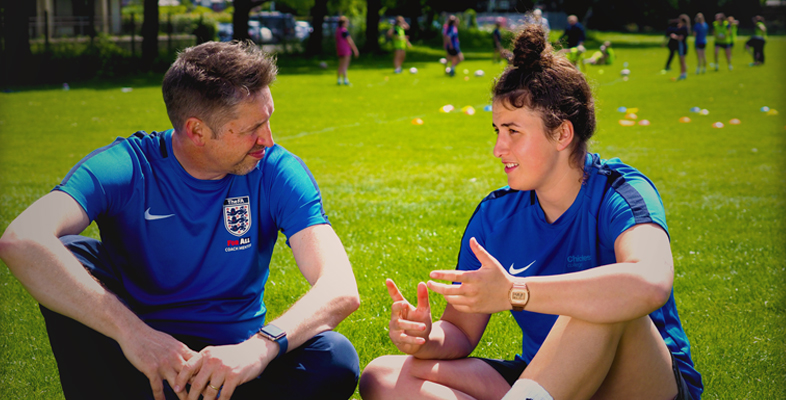2 Looking at learning from a different perspective
In the following activity you will learn about one chef’s progression in honing his craft and the different learning opportunities he has drawn on to achieve this.

As you follow the story think about how it can apply to the way coaches and coach developers might develop their learning. It is a great story and full of ideas and insights.
Activity 2 Ross Stacey: a craftsman’s road to expertise
Read the following article (5 minute read time) about Ross Stacey, a chef at The River Café: The craftsman’s road to expertise: Ross Stacey, a chef’s story [Tip: hold Ctrl and click a link to open it in a new tab. (Hide tip)]
Ross’s story is used by the English Institute of Sport (EIS) to illustrate how people learn in different ways. How do you think the ideas it contains about the following apply to coaches?
- Situated learning
- The apprenticeship
- A craftsman’s journey
- Tribal learning.
Discussion
Possible links from the article to the role of a coach developer – for each of the four learning situations – include:
- Situated learning – there is no doubt coaches learn a great deal from their own coaching environment, and coach developers can enhance this type of learning through skilful guidance, particularly by supporting coaches to critically reflect on their practice.
- The apprenticeship – this seems a recognised path for trainee chefs. Coaches would benefit from a type of ‘apprentice–master’ relationship but such role models are not always available within their own environment. Creating programmes where coach developers can undertake a similar role is possible.
- A craftsman’s journey – the best and most expert coaches have learned their craft by engaging in as many varied learning experiences as possible and travelling around to experience ideas to help them develop. Perhaps coach developers should open coaches’ eyes to alternative ways of doing things by stimulating them to try new approaches or learn from other sports and from environments other than their own.
- Tribal learning – the term ‘community of practice’ (Lave and Wenger, 1991) is often used in coaching and increasingly there are attempts to create social learning among the coaching community. A tight-knit team in a kitchen can be a powerful learning resource. Coach developers need to stimulate a similar open environment; it is not always easy when working with people, status and hierarchies, but it is achievable with a focus on improvement.
This article illustrates the importance of learning through everyday working relationships and the value of collaboration and the support and guidance provided by others. It emphasises the value of informal learning and the willingness of individuals to take responsibility for their own learning. The quality of relationships between like-minded people seems fundamental and for this reason Session 3 is devoted to understanding social relationships in more detail.
You will now move on to examine some theories of learning.
